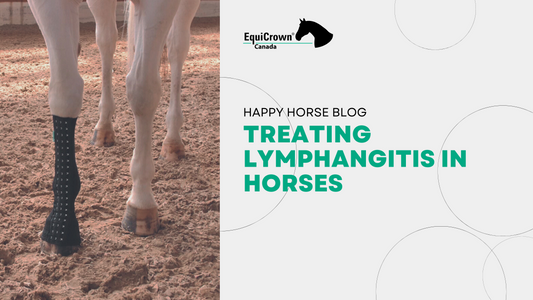
10 Eco-Friendly Horse Keeping Tips
Horse-keeping can be eco-friendly. And it doesn’t have to cost a fortune either. If you’re a horse lover, you must also love nature and want to preserve as best as you can. You can start by making small, eco-conscious choices that can make a difference. Read on to find out more about how you can become an eco-friendly horse keeper.
At first, you might feel that it doesn’t matter, that you’re just one individual, and your choices won’t make any difference. But when it comes to eco-friendly horse keeping choices, there’s power in the numbers. More and more horse owners are becoming concerned about climate changes and want to do their part to prevent damage.
If you want to become one of them, here’s what you must do.
1. Manage Manure
Managing manure doesn’t have to be a pain. Composting and spreading manure as a fertilizer for your garden is easier than you think, and it’s a smart and eco-friendly way to get rid of manure and naturally fertilize your garden.
There are many benefits to composting manure: soil benefits from it, the odor is reduced, and the volume and density of manure are reduced.
2. Buy Green Products
Educate yourself to learn the difference between ecological products and regular ones. You should consider the ingredients and the fabrication process and whether a product can be recycled or not.
Eco-friendly products should also have biodegradable packaging and should not leave any byproducts that are harmful to the environment.
3. Conserve Water
Remember that, even if it’s widely available and relatively cheap in your area, water is, actually, a finite resource that you should be taking care of. You can considerably reduce the water waste around the barn with a few simple measures.
Harvest rainwater and use it to water your horse arena or your garden during dry periods. Use spray nozzles to spend less water when cleaning the barn, and give your horse a sponge bath instead of a full shower.
4. Use Eco-Friendly Pest Control
Pest-control is a must in the barn, but be mindful about the products you choose to use. Instead of using chemical pesticides, you can try herbs and essential oils with insect-repelling properties such as basil, lavender, lemongrass, tea tree oil, or peppermint.
The most efficient and natural way to control rodents around the barn is a cat, but you can use mouse traps if a cat is not available. Stay away from poisonous substances; not only are they not eco-friendly, but they might actually be harmful to your horse and other animals as well.
5. Use Solar Powered Fans
Fans are beneficial around the barn since they create a continuous airflow that keeps moisture, odors, and bacteria away. But you don’t have to waste electricity to keep them running.
You can use solar-powered fans as an eco-conscious alternative. They are easy to use and can get the job done just as well as the ones powered by electricity.
6. Use Energy-efficient Lighting
Whenever possible, use energy-efficient light bulbs to lighten your barn. They might seem costly at first, but they are an eco-friendly choice that can help you save electricity in time. You can have the same bright light at a fraction of the cost and bring your own contribution to saving the planet.
7. Use A Solar Hot Water System
Using a solar system to heat water can help you save energy by up to 80%, especially if you live in a sunny region. The great thing about solar energy is that it’s renewable, so you can never run out of it.
If investing in a water heating system that uses solar panels is too expensive for you at this time, consider using a barrel solar water heater. It works like a charm in the hot season.
8. Use Recycled and Renewable Materials
Whenever you want to build or fix something around the barn, you can start by using recycled materials. If that’s not an option, you can always choose eco-friendly materials such as bamboo.
Eco-friendly stall mats made from recycled rubber are another great way to show that you care for the environment.
9. Save the Soil
When thinking about eco-conscious decisions, we often think of saving water or electricity, but we tend to overlook another resource that is not renewable: the soil. Soil erosion is a common problem around the barn, but luckily, there are a few simple ways to prevent it.
It all starts with trying to maintain healthy grass around the barn. Rotate your pastures every 2-3 weeks to give grass a chance to grow back. If that’s not possible, you can create a sacrifice area that will be grass-free and keep horses there while the grass grows in the rest of the pasture.

10. Use eco-friendly dust-control products
One of the most water-consuming tasks around the barn is watering your arena. But there’s a better way to get rid of dust and ensure an excellent footing for your arena. Use eco-friendly dust-control products such as WHOA Dust to reduce arena watering by up to 70%.
Bonus: WHOA Dust™ is 100% biodegradable so that it won’t leave any harmful residue behind.
Conclusion
As you can see, there are many things you can do around the barn to save energy, water, and resources. All you have to do is learn and be more conscious of the environmental consequences of each action.




